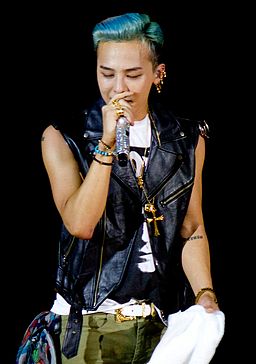Continuing my Korean cultural education, I've been listening to some K-Pop. G-Dragon is arguably the most popular Korean pop star at the moment. While not a household name in the US, G-Dragon has done collaborations with Missy Elliot and some other mainstream American rappers. This photo I think effectively conveys this artist's androgynous fashion style. Do you think G-Dragon is a guy or a girl?
This propensity for gender blurring is not uncommon in K-Pop, but it is rather confusing to me given how conservative the country that produced it is. Gay marriage is still not legal, porn sites are blocked by the government, and tattoos get blurred out on TV. And yet, trans rights are kind of ahead of the curve. Trans people still face prejudice of course, but unlike in the US, housing and employment discrimination on the basis of gender identity is illegal in Korea. Is this because of K-Pop? Is there some deeper cultural root?
This propensity for gender blurring is not uncommon in K-Pop, but it is rather confusing to me given how conservative the country that produced it is. Gay marriage is still not legal, porn sites are blocked by the government, and tattoos get blurred out on TV. And yet, trans rights are kind of ahead of the curve. Trans people still face prejudice of course, but unlike in the US, housing and employment discrimination on the basis of gender identity is illegal in Korea. Is this because of K-Pop? Is there some deeper cultural root?

No comments:
Post a Comment